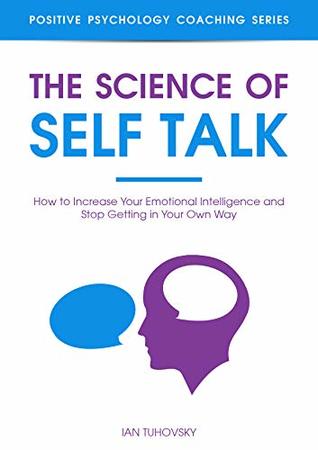More on this book
Community
Kindle Notes & Highlights
by
Ian Tuhovsky
So a constructive kind of self-talk would be any kind of self-talk that leads you in the right direction, toward your goals and toward becoming a better you.
You’ve faced challenges before, and with courage and hard work, you overcame them. And you can overcome this one, too.
You’ve made mistakes before; it’s not the end of the world. Now that you know more, you can use this information to get closer to what you really want.
Your life is pretty good. Sure, there are some improvements you want to make here and there. And you’re fully up to the task.
There are many other cognitive distortions of this kind, such as jumping to conclusions and so on. They’re a key tool in clinical paradigms such as cognitive-behavioral therapy. If you’re interested in learning more about them—and it’s definitely well worth your time—the Wikipedia page for cognitive distortion has a great list.
Nassim Taleb put it in his book Anti-fragile: A loser is someone who, after making a mistake, doesn’t introspect, doesn’t exploit it, feels embarrassed and defensive rather than enriched with a new piece of information, and tries to explain why he made the mistake rather than moving on.
The idea is to base everything on facts, not value judgments.
Learned helplessness makes you neglect the things in your life that you need to change. That’s because you’re constantly telling yourself that you can’t change and you can’t improve things. Negative self-talk is a symptom of learned helplessness. It’s the voice in your head that says I can’t and It’s no use.
Negative self-talk views stressors as a threat.
Positive self-talk views stressors as a challenge.
You ideally want to hit a sweet spot where you’re challenging yourself, but not extremely, so that you have a pretty good shot at winning. But the challenge also has to be hard enough that it forces you to grow and develop your abilities.
Truly positive people are: 1. Realistic about themselves, 2. Specific about what they want and how to get it, and 3. Confident about their ability to achieve their goals.
To be more precise, the thing distinguishing positive and negative self-talk is not so much the factual content of the thoughts but the interpretation of situations. That interpretation carries an emotional valence, a positive or negative valuation, and an orientation toward action, passive or active, constructive or dysfunctional. It’s extremely helpful to remember that most of our thoughts, positive or negative, are subjective. There’s no fact to them. Since it’s not a matter of true or false, the important question about self-talk then is: Is it lifting you up or keeping you down?
In personal development also, progress occurs in plateaus and steep rises. You have to go through the accumulation period before you experience the uptrend.
Talk to yourself the way you’d talk to someone you love.
When you stop identifying with the inner monologue, especially when it’s negative and critical, it loosens its grip on you. It becomes no more important than any other noise.
So go ahead and make mistakes, gather information from them, tweak your methods, try again, make mistakes again, rinse, repeat, until you get it right.
With each mistake, ask yourself, What can you learn from this? What information does this give you? Okay, that’s one interpretation. Can you think of any other interpretations for why things went wrong? Okay, now you have a couple of ideas. How can you do things differently? Try that and see.
I’m lucky to be with him/her. Sure, we have a disagreement sometimes, but they really make me feel happy and cherished. And they’re always there for me in the hard times.


